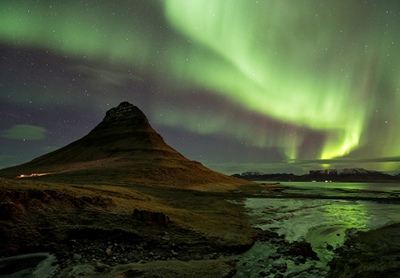







Tips for driving your rental car in Iceland
If you're travelling to Iceland, a rental car is the best way to reach all the spots this country has to offer. Iceland is a very interesting country to explore and its capital city Reykjavík counts 115000 inhabitants. In Reykjavík hosts 36.5% of the entire country's population, which counts over 315281 inhabitants. In Iceland the language spoken most widespread is Icelandic but people also speak other minor languages. The time zone in Iceland is GMT+00:00 so make sure you adjust your watch at landing. We suggest adjusting your watch before take-off to help conquer jetlag! The electric plug type in Iceland is C / F and the electric voltage is 230 V, so it could be a good idea to bring an adapter with you to protect your devices' lifetime. The calling code in Iceland is +354, make sure you note this down as it can come useful at times.
More travel information about Iceland
With a fuel cost in Iceland averaging at 1.99 USD, driving around the country won't break the bank. Iceland shares its land borders with n/a, which mean there are plenty of road trip options for travellers wishing to explore a little further. Before crossing any border, please make sure that this is in line with the terms and conditions of your car rental as these might vary according to the supplier you rent your car from. The roads stretch for 12890, 0 of which motorways, which ranks Iceland as the 127th country in the world with the longest road system. This amount of road will let you drive across the country and discover its wonders, secret spots and the delicious local tastes. Please note that in Iceland there is a Right-hand traffic law - it's important to know that the currency is the Icelandic króna (ISK). Speed limits in town are 50 km/h and on motorways they are 90 km/h. Bear in mind that in Iceland, speaking on the phone while driving is allowed therefore we recommend caution at any time.
UNESCO World Heritage Sites in Iceland
Iceland boasts two UNESCO sites which confirm this country's important heritage. Those who visit this country for leisure certainly can't miss these spots. The top UNESCO sites are: Þingvellir National Park (cultural) and Surtsey (cultural).
